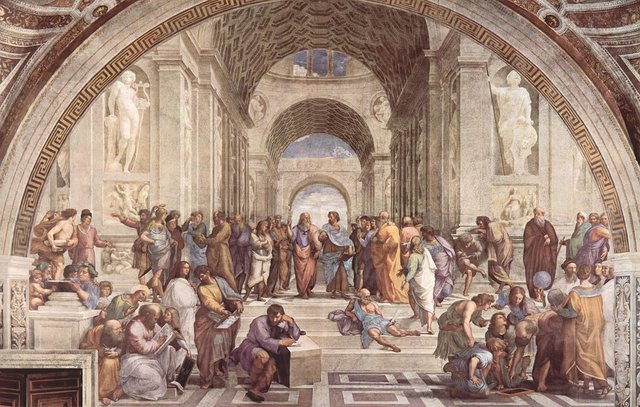
I was thinking about it, and I think the ultimate goal of philosophy is self-knowledge, to know yourself, and this is because the most important knowledge of all is the knowledge of oneself, I mean, if you know physics or anything else, for example, that knowledge will be useful only when such knowledge of physics or the thing you know is required, which will only be sometimes, but if you know yourself, you will have knowledge that will always be useful to you, because whatever you do, on any occasion, you will always be you, and therefore, knowing yourself will be necessary and useful. I believe that in this lies the universality of self-knowledge, in being the only knowledge that serves us in all situations and in all circumstances, because when we know ourselves everything we do, we do better, than on the contrary, when we don't know ourselves, everything we do is poorly done.
And I say that the ultimate goal of philosophy is to know oneself primarily influenced by Socrates, the philosopher par excellence, who reflected extensively on the aphorism inscribed on the frontispiece of the Temple of Apollo at Delphi "know thyself." Socrates saw philosophy as something at the service of man, with a practical utility, that of improving us, helping us to progress, to become wise. It is not simply a matter of knowing things, of accumulating inert knowledge to satisfy an idle curiosity, but of having knowledge that will be useful to us for something, and there is no more useful knowledge than that which we can use in all situations, the knowledge of oneself. It is this knowledge and not another, that makes us wise, that is the reason why Lao Tzu affirms in his Tao Te Ching that knowing yourself is true wisdom. And philosophy ends when wisdom is achieved, after all, philosophy means "love of wisdom", indicating that the philosopher is someone who yearns to be wise, although he is not yet. Plato said that the wise didn't philosophize because they had no need, and that therefore the philosophers were not wise.
Most philosophers after Socrates made the goal of philosophy to achieve virtue or to achieve happiness, two things for which it is essential to know oneself, to know the state in which we find ourselves, and therefore, to know how to change it. These two things (virtue and happiness), are two things that we often associate with wisdom, since they are two consequences of wisdom. Wise is he who knows how to act and how to think, he who does not allow himself to be guided by ignorance, and he who knows how to act knows who and what he is, knows what he should do and what he should not do, does what he knows and doesn't do what he doesn't know, he knows, ultimately, how to live, that is why he knows what to do at any moment.
The lover of wisdom will always seek all kinds of knowledge that is useful to him, with a predominance of self-knowledge, because this is the only path to wisdom.
Image Source: 1
